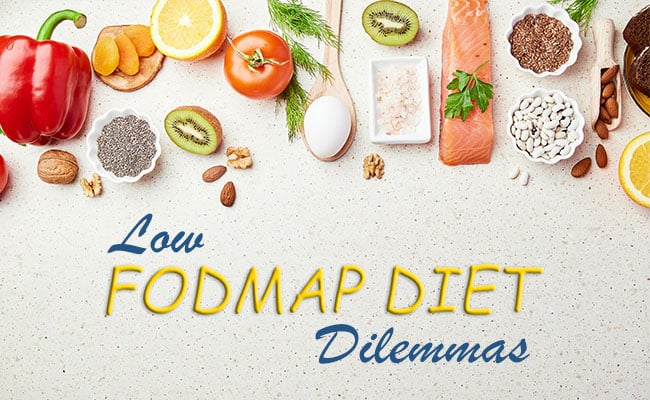 Rome Campus
Rome Campus
6 Courses

Diet and Nutrition
Best of UEG 2025
Rome Foundation Continuing Medical Education Webinar.
This educational session is open to all healthcare professionals interested in the role of diet and nutrition in treating disorders of gut-brain interaction (DGBI). Please note: CE credits are not offered for this session.
Want to hear about the top diet and nutrition-related abstracts in the field of DGBI from UEG 2025 in one short webinar?
Join experts from our Rome Diet and Nutrition Section as they unpack some of the top research from UEG that is advancing our understanding of diet, nutrition, and DGBI.
• Cost: Free
Diet and Nutrition
Best of DDW 2025
Rome Foundation Continuing Medical Education Webinar.
This educational session is open to all healthcare professionals interested in the role of diet and nutrition in treating disorders of gut-brain interaction (DGBI). Please note: CE credits are not offered for this session.
Want to hear about the top diet and nutrition-related abstracts in the field of DGBI from DDW 2025 in two short webinars?
Join experts from our Rome Diet and Nutrition Section as they unpack some of the top research from DDW that is advancing our understanding of diet, nutrition, and DGBI.
• Cost: Free
Diet and Nutrition
A Simplified Approach to the Low FODMAP Diet
Rome Foundation Continuing Medical Education Webinar.
This webinar reviews evidence on the low-FODMAP diet for IBS, its efficacy and limitations, common triggers, and simplified dietary approaches. It offers practical guidance and clinical pearls to help clinicians apply streamlined low-FODMAP strategies effectively in practice.
Please note: CE credits are not offered for this session.
• Level: Beginner/Intermediate
• Cost: Free
Diet and Nutrition
How to Start the Conversation Around Diet & DGBI
A Rome Foundation Continuing Medical Education program.
Rome Foundation Diet and Nutrition Webinar: an on-demand and live educational opportunity to discuss how to initiate a conversation with the patient around diet and its role in Disorders of Gut-Brain Interaction (DGBI). The webinar will give both the physician and dietitian perspectives and provide phrases that clinicians can use to address patients' perception of food and when tackling tough patient questions.
Learning Objectives:
1. Understand how DGBI and diet are interconnected
2. Integrate nutrition into medical care plans
3. Formulate responses to common patient questions around diet
4. Build a toolbox with conversation points surrounding how to start conversations about diet in patients with a DGBI
Speakers:
Joshua D Novak, MD
Associate Professor of Medicine
Icahn School of Medicine at Mount Sinai
New York, NY
Bethany Doerfler, MS, RDN
Clinical Research Dietitian
Behavioral Medicine Group at Northwestern's Digestive Health Institute (DHI)

Diet and Nutrition
Scientific evidence for a central role of food in IBS
This symposium from the newly formed Rome Foundation Diet and Nutrition section provides updates about the scientific evidence that supports the relevance of food in symptom generation in IBS and the use of various dietary interventions in the management of patients with IBS.
The symposium starts with a general overview on the role of food in the pathophysiology with IBS by Rome Foundation Board Member Magnus Simrén, University of Gothenburg, Sweden, and continues with two lectures dedicated to the current dietary interventions used to treat symptoms in IBS by Caroline Tuck, Swinburne University, Australia and Stine Störsrud, University of Gothenburg, Sweden; the session ends with a general discussion and Q&A, and after the session attendees will have a better knowledge about the scientific basis for a central role for food in the pathophysiology in IBS, and for use of dietary approaches as part of the clinical management of IBS, and how to communicate this to the patients.
Presented by:
Magnus Simrén, MD, PhD, RFF
Carolina Tuck, PhD
Stine Störsrud, RD, PhD

Diet and Nutrition
Low FODMAP Diet Dilemmas: A Case-based Approach
This symposium will use a case-based approach to provide answers to questions that commonly arise about the low FODMAP diet when used for patients with IBS:
|
Presented by:
William D. Chey, MD, AGAF, FACG, FACP, RFF
Marvin Pollard, Professor of Gastroenterology, Professor of Nutrition Sciences
Chief, Division of Gastroenterology & Hepatology
Michigan Medicine, Ann Arbor, MI, USA
Nancee B. Jaffe, MS, RDN
Lead Dietitian for the UCLA Vatche and Tamar Manoukian Division of Digestive Diseases